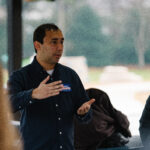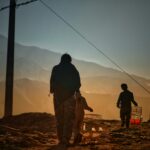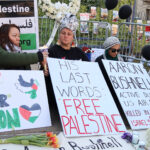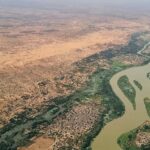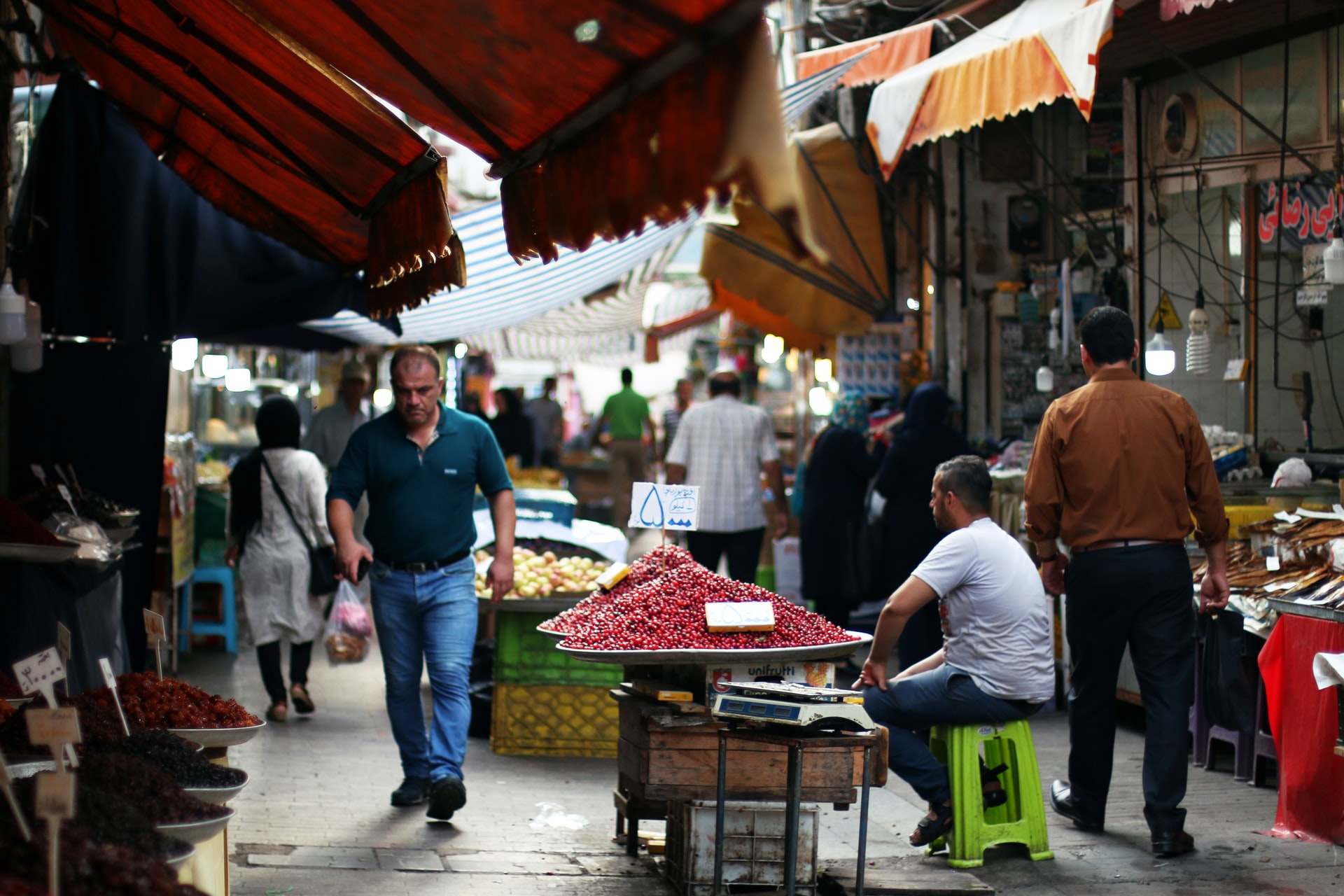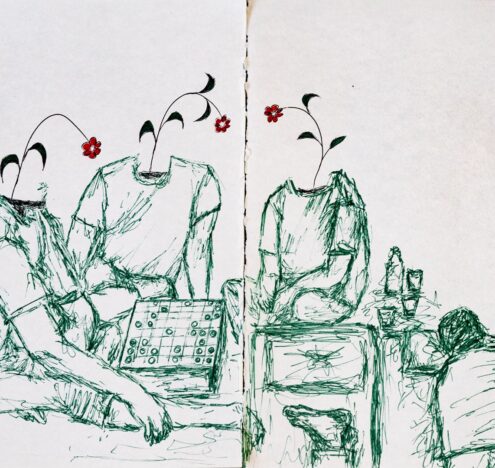Like many Iranian Americans, the majority of my family lives in Iran. Some of my most treasured memories can be traced to my childhood trips to Tehran, reuniting with loved ones.
We would step off the plane after 24 hours of traveling and ride the escalator to baggage claim, while no less than 16 family members would be pressed up against the glass wall of Imam Khomeini airport. The children would run up to us with the world’s biggest grins while my aunts and grandmother would attempt to hold back tears of joy. We would go from one person’s house to the next, drinking more chay and shirini’s than I could count.
In 2016, the summer before my senior year of high school, I spent six weeks in Iran — almost exactly one year after the Joint Comprehensive Plan of Action (JCPOA), commonly known as the Iran nuclear deal, was enacted. After signing the agreement, the United States lifted some of its sanctions on Iran. But even with this much-needed sanctions relief, working-class Iranians struggled to keep up with the cost of living.
Maximum pressure policies don’t harm Iran’s political elite but instead add additional barriers to ordinary Iranians just trying to make ends meet — many of whom have fallen into absolute poverty.
Through all my trips to Iran, whether during the 2009 Green Revolution or even during these long periods of economic instability, I have seen the Iranian people remain resilient. They found joy by going out to restaurants, visiting with family, and hiking the incredible mountains. They held immense pride in their culture. I re-visited Iran just a few weeks ago to celebrate Nowruz, and it was as if someone had taken a vacuum and sucked the joy out of the country. People’s resilience had been tested, and the build-up of tension and obvious expressions of despair were both unfamiliar and disconcerting. This served as a stark reminder that politics and policy are deeply personal.
WHEN POLITICS ARE PERSONAL
For many of us, policy decisions dictate the safety and security of the people we love most. In 2015, President Barack Obama negotiated the nuclear deal, a diplomatic feat that rolled back Iran’s nuclear program in exchange for sanctions relief. I remember my disbelief when President Donald Trump withdrew from the deal against the recommendation of European allies and instituted “maximum pressure.” Trump added new layers of sanctions during the pandemic, and made it exponentially more complicated for a Democratic successor to unwind them. For instance, by muddying terrorism and nuclear sanctions together and designating Iran’s Revolutionary Guard Corps as a Foreign Terrorist Organization on Apr. 15, 2019, the Trump administration ensured that re-entry into the nuclear deal would require extensive political capital.
As negotiations for re-entering the nuclear deal have dragged on for over a year, the Iranian people continue to suffer at the hands of maximum pressure sanctions. While the Trump administration implemented the sanctions, the current administration has failed to deliver any relief. Working and middle-class Iranians largely support democratic ideals and greater civil rights, but their trust in the West has proven futile.
My father arrived in Iran weeks before I did. On one of our calls, he relayed the dramatic increase in child beggars across even the wealthier areas of Tehran. Child poverty is a battle Iran has been losing for many years, and it has worsened from my observations. For example, during my daily walks through Seyed Khandon neighborhood, I witnessed many children aged 5 through 9 attempting to lug giant bags. These bags were easily three times their size, filled to the brim with plastic bottles and cans, as the children tried to make maybe $.50 at the end of the day. While the Islamic Republic holds a significant part of the blame for this egregious policy failure, we must recognize the role US sanctions have played in crushing any semblance of economic stability, pushing many below the poverty line, and ultimately failing these children. Maximum pressure policies don’t harm Iran’s political elite but instead add additional barriers to the nurses, taxi drivers, business owners, and lawyers — ordinary Iranian citizens just trying to make ends meet, many of whom have fallen into absolute poverty.
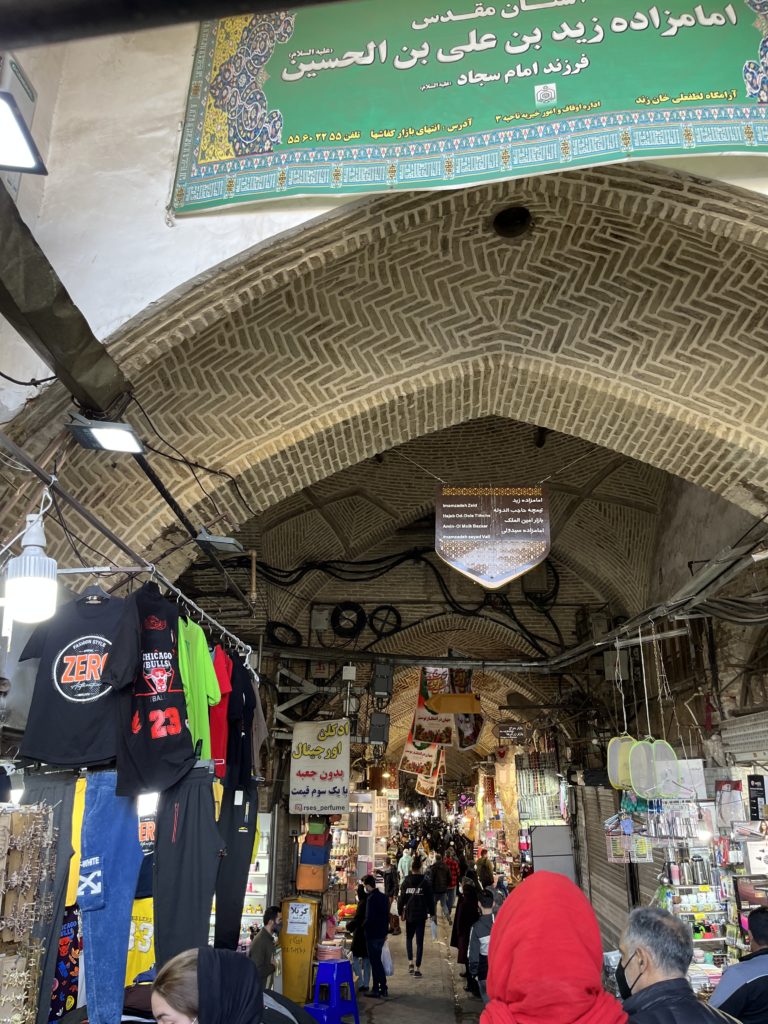
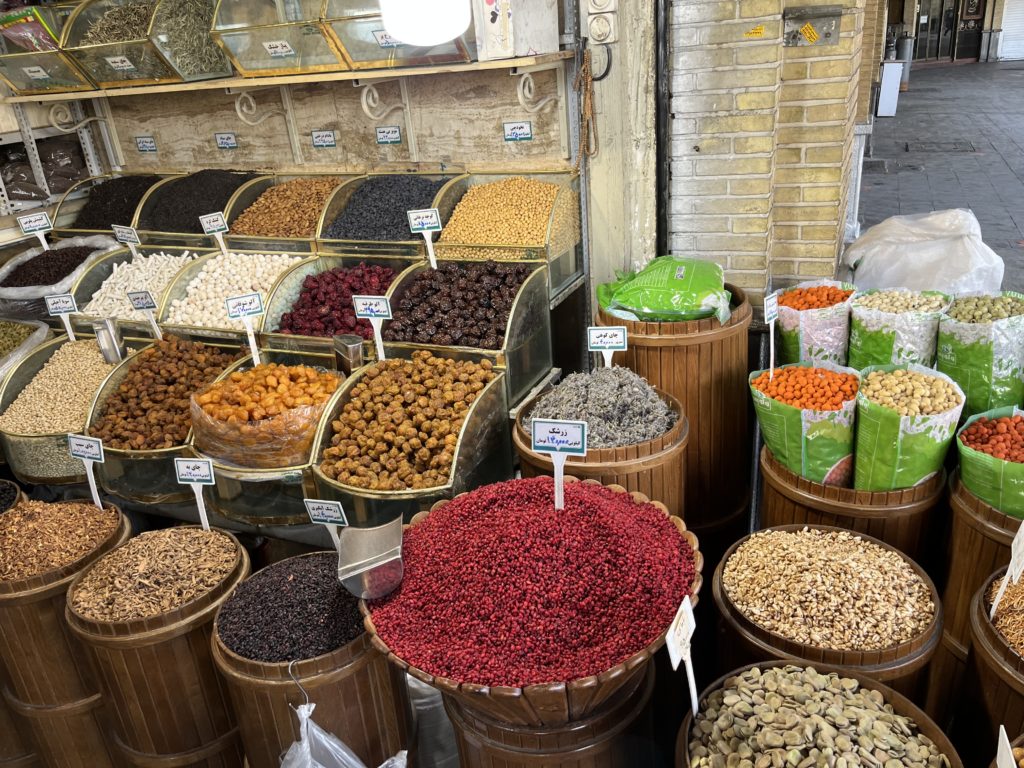
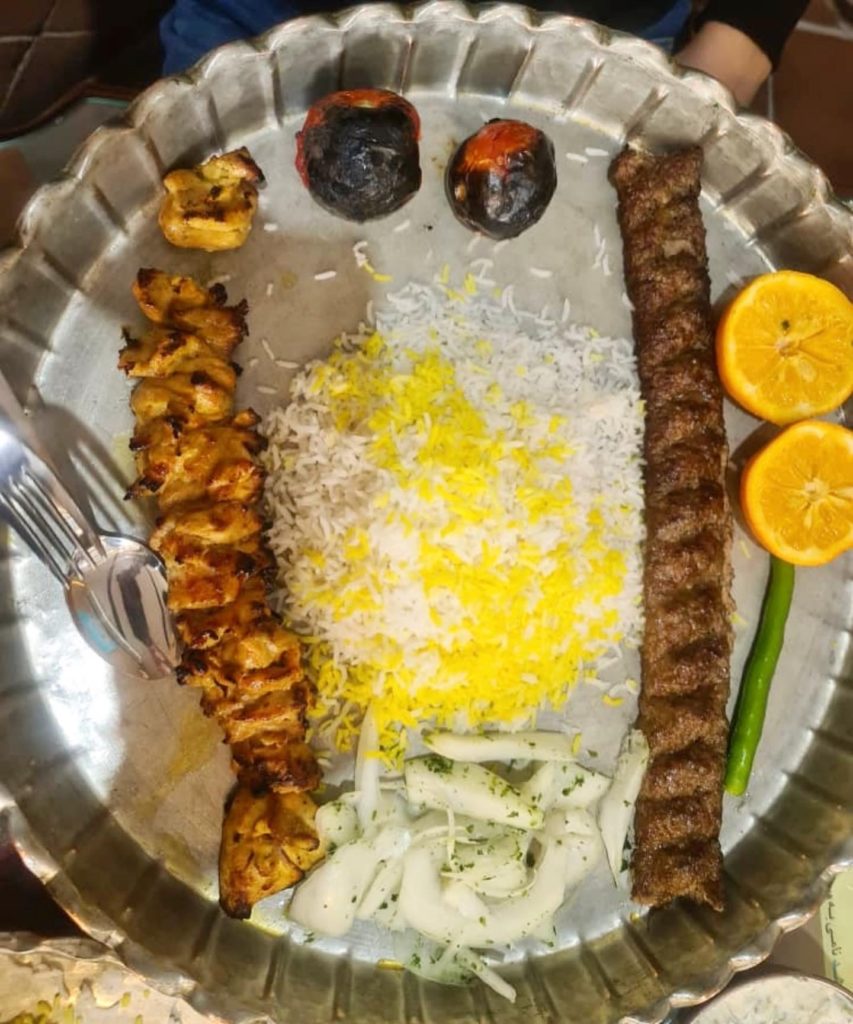
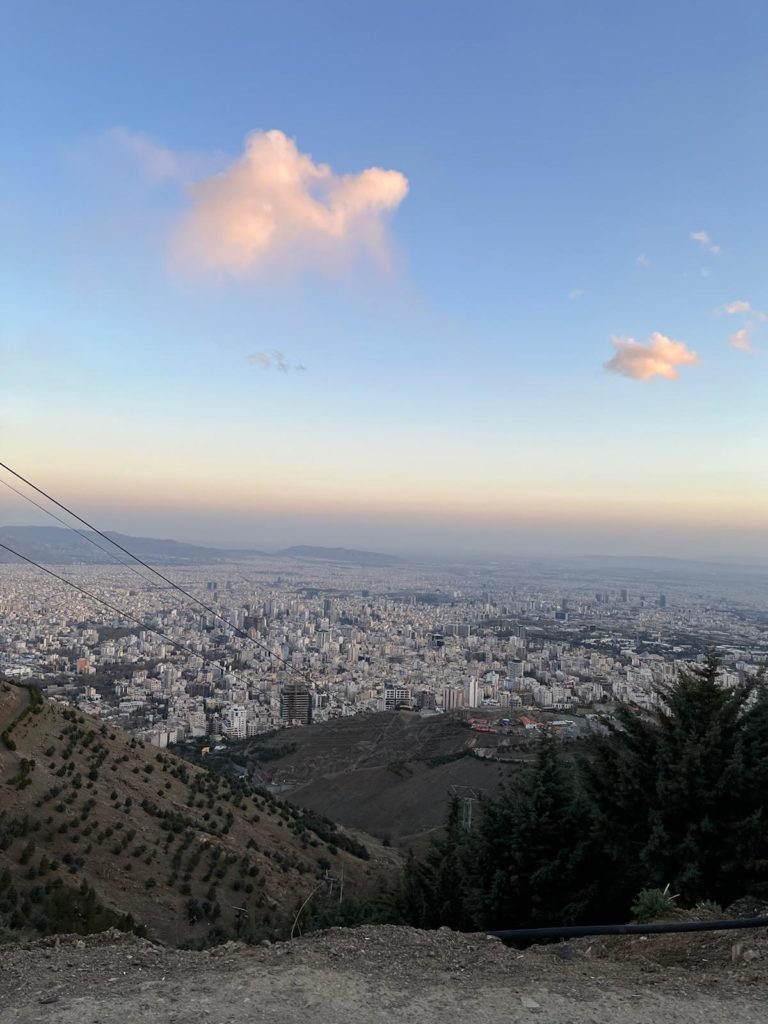
Without fail, no trip to Iran is complete without a stop at the bazaar. With hundreds of stands, you can find whatever you want — spices, hand-sewn tablecloths, and incredible jewelry for a bargain. My aunt and I scoured the bazaar for the same kitchen knife she bought a year ago on my most recent trip. After finding it, the shop owner reported it would cost 250 toman. She looked at him incredulously and argued she bought the exact knife for 30 toman not too long ago. This kitchen knife is symbolic of Iran’s staggering inflation. These same egregious price hikes apply to groceries, clothing, and, if you can even find them, specialty medications like those needed for cancer treatment. Wherever I went and whomever I talked to, the effect of inflation and the unbearable cost of living was on everyone’s mind.
SUFFOCATING IRANIANS
Maximum pressure policies were only made worse by the COVID-19 pandemic, which ravished Iran, infecting 7,208,968 and leading to the death of 140,854 individuals. The pandemic exacerbated inequities across the globe, but sanctions worsened Iranians’ suffering. While sanctions aren’t supposed to impact the flow of humanitarian goods, they continuously did through shortages of masks, testing kits, ventilators, and other necessary medical equipment. These shortages also strengthened Iran’s black market, which is only available to the lucky minority who can afford the exorbitant prices.
When vaccines initially became widely available in the US and Europe, very few were available to the 86 million Iranians. While many Americans refused vaccination, the people of Iran were begging for it despite Iran’s Supreme Leader cravenly propagandizing against and banning US-produced vaccines. Thanks to that self-defeating edict and a sanctions regime that significantly stifles the flow of even humanitarian goods to Iran, most Iranians have been unable to receive mRNA vaccines. While most Americans have now gone back to semi-normal, my grandmother has barely left her apartment since 2020, when the pandemic began. Similarly, my six-year-old cousin has never attended school, and the rest of my family — even after receiving the Astrazeneca vaccine — are paralyzed from the fear of this virus.
I returned from my trip more convinced than ever that the US needed to take action to correct its policies to lift the burdens off of ordinary Iranians and end their unjust punishment. Re-entry into the Iran nuclear deal is the only viable method to ensure Iran doesn’t require a nuclear weapon and the pathway to lifting the egregious collective punishment sanctions. The last thing the American people want is another war in the Middle East. Yet, the negotiations have stalled in the past few weeks as Iran’s government has demanded the complete removal of Trump’s “maximum pressure” sanctions, and President Joe Biden has refused.
As Iranian Americans, we witness the suffering of the Iranian people firsthand, as we reconcile with the great physical distance but strong emotional connection. This deal is the only option to give Iranians, like my own family, a chance to breathe just a bit easier. Therefore, the United States should lift the sanctions once and for all, and restart the nuclear deal.






